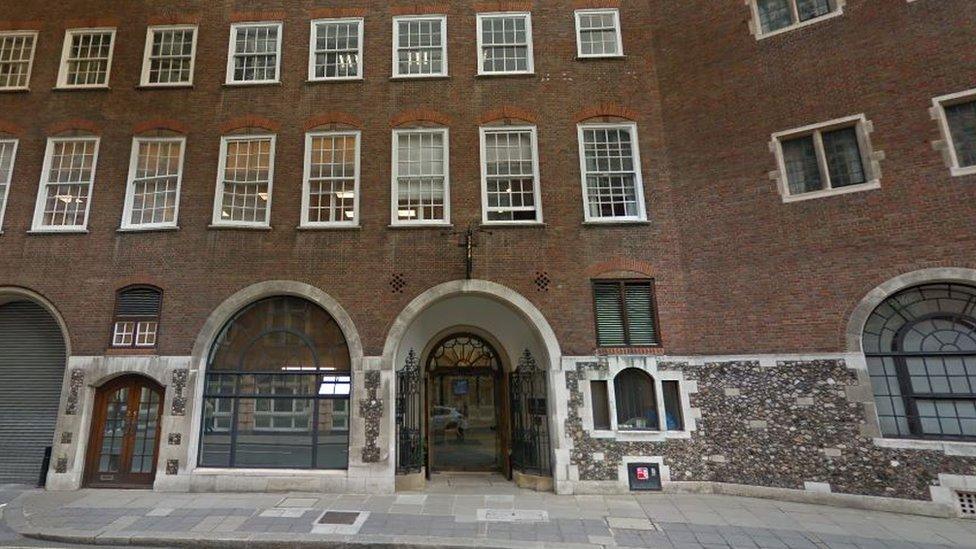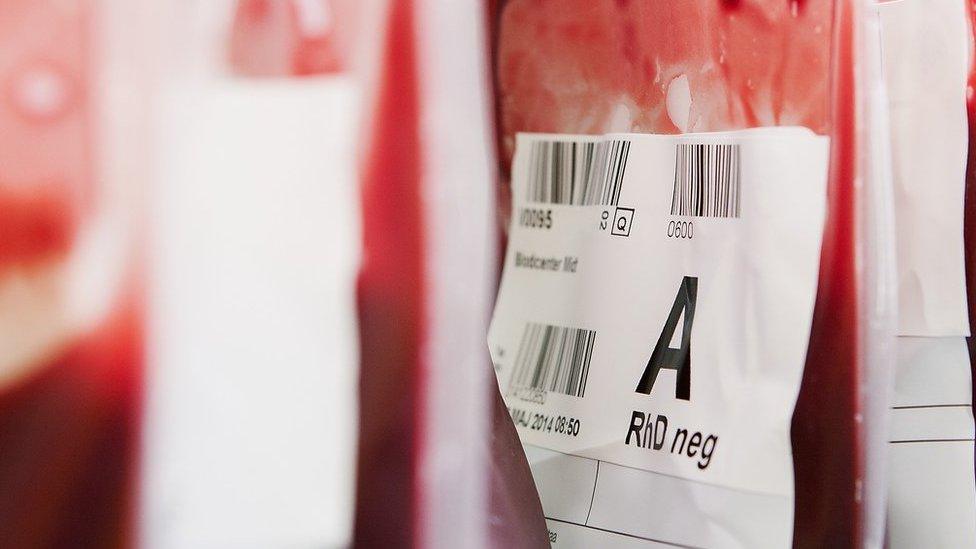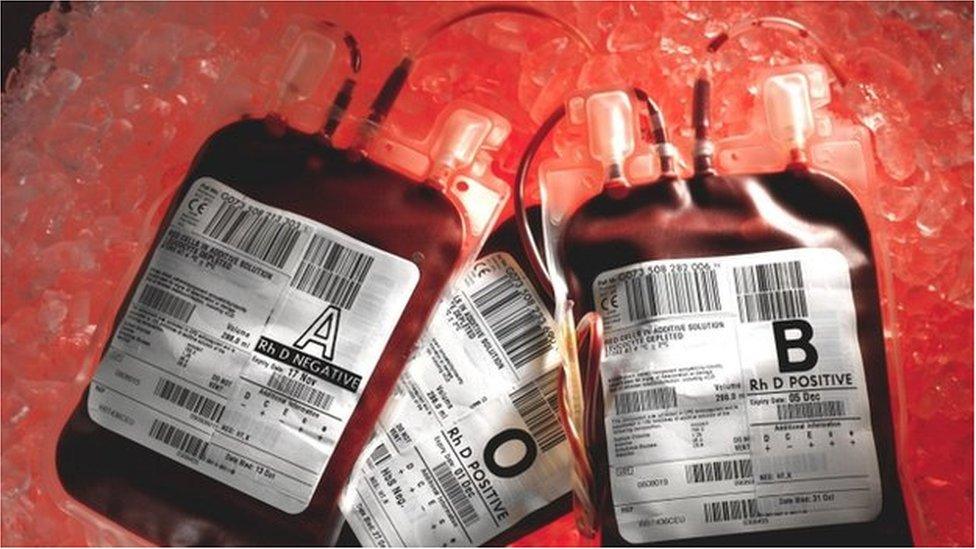Scottish government criticised at start of blood inquiry
- Published

The inquiry is under way at Church House in central London
The Scottish government has been criticised at the start of the contaminated blood inquiry.
Lawyers said Scots patients questioned why ministers were not playing a key role in the UK-wide investigation now under way in London.
In a statement on behalf of about 250 Scottish victims, Aidan O'Neill said the people he represented judged the move "cowardly" and "appalling".
The Scottish government said it was in talks with the Cabinet Office.
The public inquiry is looking at how thousands of NHS patients were given infected blood products during the 1970s and 1980s in what has been dubbed the worst-ever NHS treatment disaster.
It comes three years after the Penrose Inquiry, which was set up by the Scottish government, was labelled a "whitewash".
Its powers were limited and returned a single recommendation that anyone in Scotland who had a blood transfusion before 1991 should be tested for Hepatitis C.
In a statement to the new inquiry read by Mr O'Neill the families said they saw the Penrose Inquiry as "a lost opportunity and unfinished business".

The families shared the concerns "at the failure to date of the Scottish government to apply to come into this inquiry as a core participant", he said.
Mr O'Neill added: "That failure has not been well received by those whom we represent.
"Damning words such as 'cowardice', as showing an 'appalling attitude', a 'shocking misjudgement' and an 'embarrassing' failure on the part of the Scottish government - particularly against the fact that so many Scots - survivors of Penrose you might say - have been recognised as core participants in this inquiry.
"We don't understand why the Scottish government has apparently changed its position from when Shona Robison, the then Scottish Secretary of Health, wrote to the prime minister on 27 October 2017 confirming that she 'expected' that the Scottish government along with the other administrations in the UK - would each be represented as core participants to the inquiry with legal representation."
About 3,000 Scots patients are estimated to have been infected by contaminated blood products between the 1970s and 1991. Many of them have since died.
Earlier, Mr O'Neill told victims at the hearing: "We are hopeful that this inquiry will be able to properly and fully answer so many questions which have been raised by those whom we represent - those questions which for us were left unanswered by our experience in the Penrose Inquiry."
'Basic rights'
He said: "It is the basic rights of the infected and the affected which have not been respected in the many years in which you have had to live through this contaminated blood disaster.
"Our experience is that the injury and the deaths in so many cases which have been suffered have resulted from wrongful acts on the part of those responsible for providing supplies blood and blood products."
A Scottish government spokeswoman said: "We are in the process of discussing a number of issues with the Cabinet Office, such as the inquiry's terms of reference, in order to enable the Scottish government and NHS Scotland bodies to participate fully in the inquiry.
"As we have already set out, we expect to become core participants to the inquiry once these issues are resolved."
- Published24 September 2018
